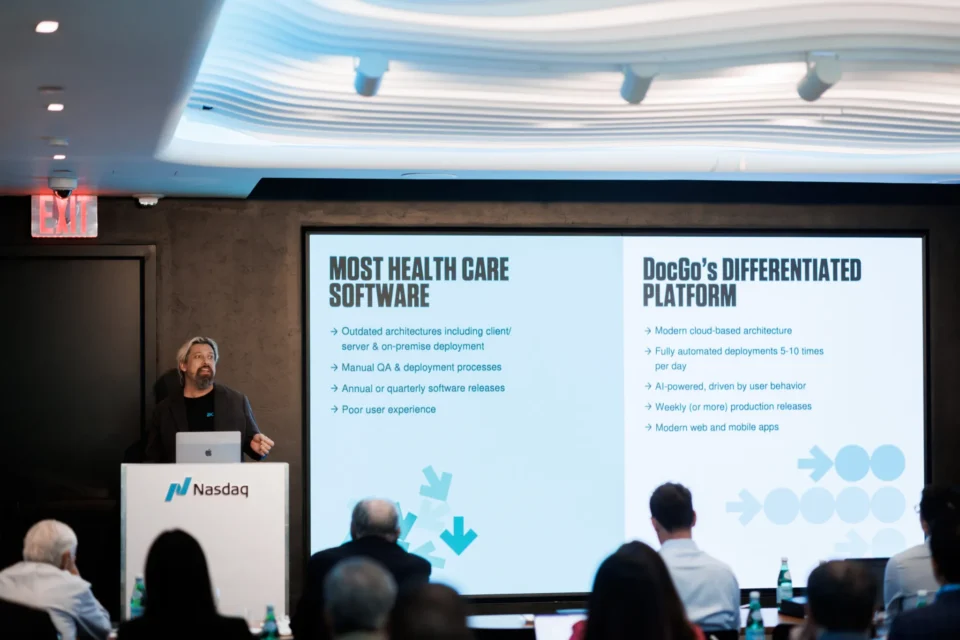Medically reviewed by Sherri Suozzo, Ph.D., Senior Director of Clinical Advanced Practice
The U.S. healthcare system often overlooks the unique needs of individuals on the autism spectrum (or with autism spectrum condition). This population, more vulnerable to physical and mental health challenges, regularly struggles to access quality care. Moreover, issues like stigmatization, lack of provider training, and communication difficulties mean key healthcare services for this group are often overlooked by providers.[1]
During National Autism Acceptance Month, DocGo is spotlighting new healthcare approaches tailored to better serve individuals with autism spectrum condition (ASC). Their service, DocGo On-Demand, ensures those with complex conditions like ASC have access to clinicians whenever needed in the comfort of their own homes.
The Impact on Utilization and Costs of Care from Managing ASC
Individuals with ASC encounter a range of healthcare challenges, well beyond limited access. A significant concern for this group and their caregivers is the higher utilization of the health care system – which directly corresponds to higher cost of care and out of pocket expenses.
People with ASC tend to use healthcare services far more frequently than the general population. According to a 2019 study, the average annual healthcare cost for an adult with ASC was more than 70% higher than costs in the general population control group.[2] Families with children who have ASC face even steeper financial challenges, as their annual healthcare costs are typically four times higher than families without.[3] These financial impacts can be compounded by the disruptions in employment and income related to caring for a child with ASC.
Substandard Care and its Consequences for ASC People
Another concern is the substandard care provided to individuals with ASC. Studies show that ASC people frequent emergency departments (ED) and have high rates of hospital readmission. About one-third of these visits are considered avoidable, as the patients’ needs could be addressed in a primary care setting.[4]
For those with ASC, high hospitalization rates underscore the challenges they face in finding appropriate care. Many adults and families report that healthcare providers have misconceptions about autism, which can result in inappropriate or insufficient medical treatment.[5] The inadequate training of healthcare providers in long-term or residential care settings exacerbates these issues, often resulting in autistic people being directed to the ED for conditions that could be treated in less acute settings. This cycle results in higher hospitalization rates, increased healthcare costs, and poorer health outcomes.

Mobile Healthcare: A Better Option for ASC
For individuals with ASC and their families, the potential emotional distress associated with ED visits and hospital admissions can be especially challenging. An estimated 40 to 50 percent of people with ASC also have a clinical diagnosis of anxiety.[6]
Outside of medical emergencies, the most effective care environment for this population takes place outside acute clinical settings, where they can feel comfortable and communicate more easily.
Mobile medical providers like DocGo are helping transform care for ASC families by offering at-home and outpatient treatment services. With DocGo On-Demand currently offered in select markets, clinicians can deliver urgent and preventative care directly to patients in their homes.
These services provide more than a comfortable care experience for individuals with ASC. DocGo’s clinicians support ASC patients, helping them to clearly communicate about their condition. This approach helps cut out the stigma that often prevents effective care for ASC patients, and it can help reduce healthcare costs. By helping make care more accessible, conditions and health issues can be treated before they escalate and potentially become urgent or emergent visits. Acute care settings like the ED are considerably more expensive and stressful than mobile health services – for both the patient, their family, and for the health care system.
The Future of ASC Care
Managing ASC comes with a unique set of challenges for those diagnosed and their caregivers. It shouldn’t also involve high-cost and substandard healthcare options. Across the country, patients with complex conditions often find themselves in a healthcare system that struggles to understand and address their specific needs. Advocating for these patient populations is crucial, as is directing them toward new services and innovations that can help them manage their conditions.
DocGo On-Demand’s app offers a practical solution to address the challenges faced by individuals with ASC in healthcare settings. By leveraging technology and prioritizing informed care, providers like DocGo are creating a more inclusive and supportive healthcare environment for individuals with complex conditions everywhere.








